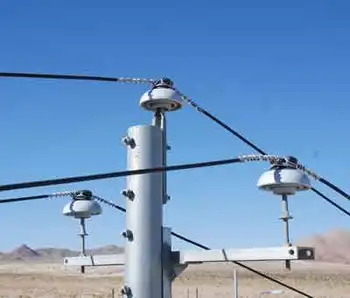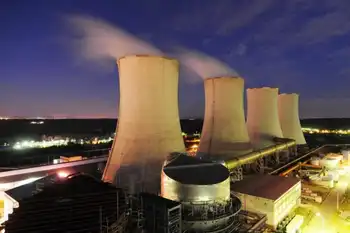Build more reactors in Bowmanville soon, insiders say
By Durham News
Substation Relay Protection Training
Our customized live online or in‑person group training can be delivered to your staff at your location.

- Live Online
- 12 hours Instructor-led
- Group Training Available
The province announced June 29 that while Atomic Energy of Canada Limited had provided a compliant bid to build much-anticipated new nuclear reactors at Bowmanville's Darlington site, it was billions too high. Energy and Infrastructure Minister George Smitherman said federally-owned AECL needed to "sharpen its pencils" before coming back with a better offer.
A few weeks later, Bruce Power, which owns the nuclear plant in Bruce County on Lake Huron, announced it wouldn't go ahead with building new reactors there. That came just as news broke that decreased demand meant Bruce was selling power at low or negative prices to keep reactors going, or, on occasion, even shutting them down completely.
So, do we still need new reactors?
Yes, say insiders, some of whom call the province's delay in moving on new reactors at Darlington shortsighted, given both the lead time necessary to build them, and the premise lower demand caused by economic turbulence isn't likely to last.
"Ontario cannot afford to wait much longer," said Rosemary Yeremian, of Toronto-based market research firm Strategic Insights, in a letter to Mr. Smitherman. "The longer the wait, the more likely we will face electricity shortages when the economy bounces back — a scenario our manufacturers and businesses cannot afford."
Ms. Yeremian recently published a paper looking at what is likely to happen when the recession ends. She looked at two other fairly recent recessions, in the 1980s and 1990s, and determined that in spite of changes to Ontario's economy and some shift in the manufacturing sector present in today's recession, and in spite of shifts toward conservation, there is likely to be a "resurgence of electricity demand" when the current economic downturn ends.
That's not to say Ontario should expect to see the peaks in demand seen after the previous two recessions, she noted in her paper. But Ontario still needs to be prepared.
"It's important to be careful and not get carried away by current recessionary circumstances," she said in the research document. "It is easy to predict doom and gloom for the manufacturing sector given the realities of today's credit environment. However, it is also important to remember that the heart of Ontario's manufacturing base continues to be strong."
The current delay to get moving on the new reactors is shortsighted, she said in an interview.
"Ontario has absolutely no other choice for baseload electricity generation other than nuclear," she said.
It's a perspective shared by Dr. Neil Alexander, president of the Organization of CANDU Industries.
Not only could the delay have implications in terms of ensuring consistent provision of baseload electricity, but it risks Canada's place in the growing nuclear market, Dr. Alexander said.
Ontario's first mistake, he contends, is that by going to a Request for Proposal and having non-Canadian firms bid along with Canadian AECL, the wrong message was sent to those international countries considering building reactors.
"It's a bit like the chairman of GM saying, 'I have to buy a new car; I think I'll see what BMW and Volkswagen can do for me'," Dr. Alexander said.
The delay in moving forward was the next error, said Dr. Alexander, adding what needs to happen, instead of the province simply throwing the ball back into the federal court without hinting at "what game they're playing," is the two sides get together and negotiate.
"I'm absolutely sure that if they were able to do that, we could sharpen the pencils dramatically," Dr. Alexander said.
Meanwhile, the Power Workers Union also said it's time to get going on the new reactors.
"As the economy rebuilds, and some analysts are saying that now, you have to have an affordable, reliable electricity supply to accommodate the upswing in the economy," said John Sprackett, staff officer with the PWU. "Ontario has a long history of being very good at that."
True, said Jacquie Hoornweg, of Ontario Power Generation. Right now, OPG's nuclear plants in Durham are providing about 30 per cent of all the electricity used in the province.
"One in every three light bulbs that go on, that power's coming from Durham," she said.
The existing reactors at Darlington figure strongly into OPG's performance, Ms. Hoornweg said, noting the plant's 94-per cent capability factor in 2008.
"Darlington really has become a leader, not only in Canada, but across the industry," she said.
And, the future should include more of the same, said Dr. Alexander.
It would be an easy sell, he said, "if anyone was listening.
"It's one of the few industries that we are now a leader in, one of the few industries that is growing," he said. "It's a great opportunity. We're struggling to understand why other people don't see that."











